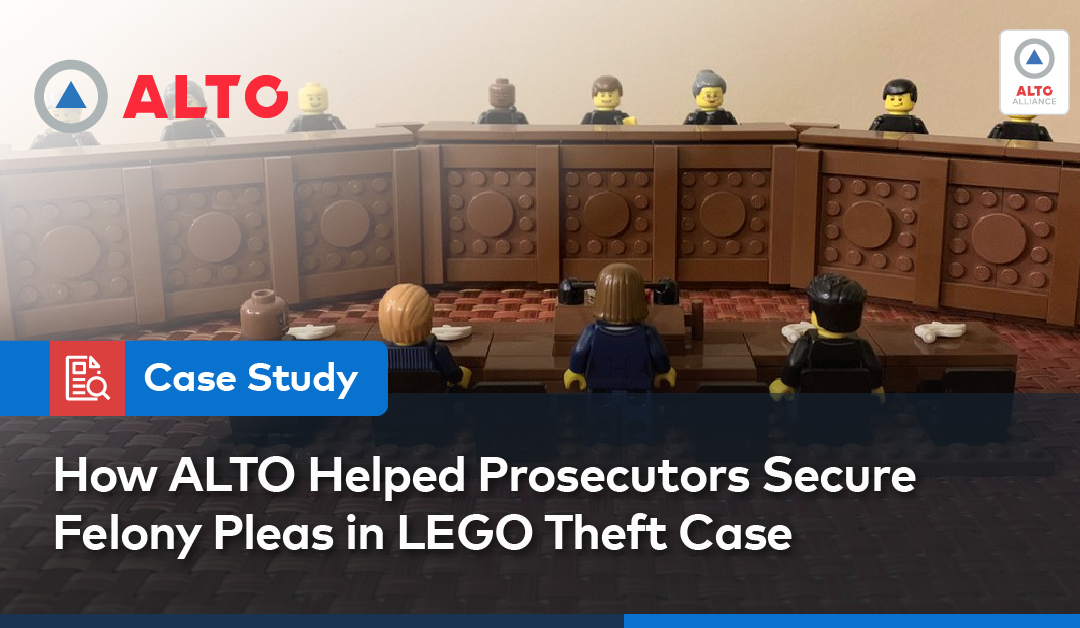Increasing incidents of theft and violence are posing significant challenges for asset protection and loss prevention teams. This problem is compounded by limited resources and insufficient bandwidth to address the root causes, such as substance abuse and mental health issues, which intersect with broader societal challenges. Punitive measures frequently fail to address these underlying causes, perpetuating a cycle of recidivism. Meanwhile, the absence of consequences can also lead to recurring issues.
This case study examines an incident in Cincinnati, OH, highlighting ALTO’s legal advocacy as a crucial aspect of the last mile of retail asset protection and its broader implications of protecting retailers and empowering communities.
Incident overview: advocating for treatment
On March 18, 2024, an individual with a probation violation stole a bottle of liquor from a retail store while intoxicated and became irate with the security guard. After an incident report was filed and a case prepared for trial, ALTO’s Cincinnati legal coordinator, along with the security guard present during the incident, met with both the prosecutor and the defense at the initial hearing on April 23.
Conversations with the defense revealed that the offender, only 25 years old, had no prior offenses. The ALTO legal coordinator concluded that the individual needed help with alcoholism rather than incarceration, and decided to advocate for a reduced charge of attempted theft, stressing the importance of treatment over jail time in this situation. At the time of the first hearing, he had been in a treatment center where he was sober for 3 weeks.
The guard had the opportunity to address the judge and reflected on his own struggles with alcohol and journey to sobriety. He expressed his desire to see the individual receive the help they needed. When the legal coordinator addressed the judge, she shared her experience of losing loved ones to alcohol. She emphasized that alcohol, like any other drug, poses a serious problem if someone is willing to steal for it. She requested the judge to consider involuntary treatment instead of jail, hoping he might hear something crucial to save his life and address the root of the problem, ultimately resolving the issue.
The offender’s mother attended the preliminary hearing, and expressed her gratitude to the legal coordinator with tears in her eyes.
Sentencing: impact in action
At the May 10 sentencing hearing, the judge remarked on the legal coordinator’s recommendation and spoke directly to the offender about his problem. While his sobriety paper had been provided, the judge was informed by the individual’s attorney that he had relapsed since the last hearing.
Despite this setback, the judge considered the earlier treatment recommendations and sentenced the offender to 90 days in a treatment facility, with a minimum of eight days committed based on advice from treatment counselors. The offender was immediately handcuffed, taken to the treatment facility, and no restitution was ordered.
Analysis: balancing justice and rehabilitation
Retail crime’s root causes, often overlooked due to limited resources, can sometimes intersect with broader issues impacting society such as substance abuse and mental health. Punitive measures often fail to address the underlying causes, perpetuating a cycle of recidivism. Conversely, an absence of consequences can also lead to recurring issues. This raises questions about the effectiveness of such measures, particularly when substance abuse and mental health concerns are involved.
Comprehensive legal advocacy is pivotal in the last mile of retail asset protection to ensure that there is not only a consequence to safety disruptions, but that the consequences match the crime and address root issues when appropriate, such as substance abuse. This is an example of ALTO’s last-mile solution, where we transform case data and analysis into actionable plans and accountability for offenders. Legal advocacy, just one component, makes a significant difference in ensuring that a second chance is offered where appropriate, thereby not only protecting retailers but also empowering communities at large.
Protecting retailers, empowering communities
ALTO’s nationwide team of locally based legal experts support retailers in court while carefully analyzing patterns and factors behind offenders’ actions. Through close collaboration with prosecutors, defense attorneys, and community stakeholders, ALTO not only holds offenders accountable but also fosters rehabilitation and community safety.
ALTO’s last-mile asset protection solution offers a robust framework for turning incident data into long-term, actionable strategies, thereby protecting retailers and empowering communities. Learn how ALTO can enhance your retail asset protection strategy to the last mile.



